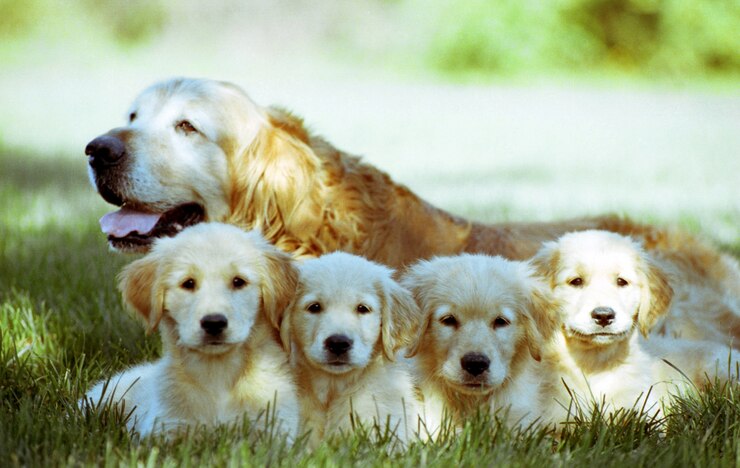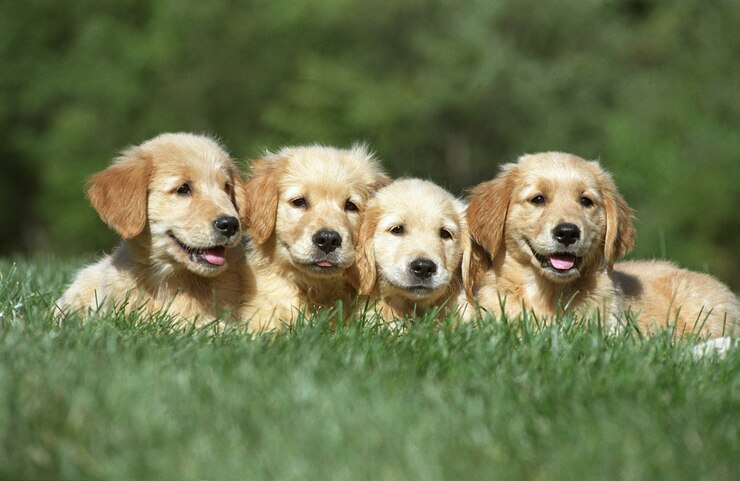Welcome to the enchanting world of heritage puppies! If you’re a dog lover, chances are you’ve heard about these unique and captivating breeds. But what exactly are heritage puppies? In this blog post, we’ll dive deep into their history, characteristics, and the reasons why they hold a special place in our hearts.
Table of Contents
The History and Origins of Heritage Breeds
The history and origins of heritage breeds can be traced back hundreds, if not thousands, of years. These breeds were developed through careful selection and breeding to possess specific traits that made them well-suited for various tasks and environments.
Many heritage breeds have deep roots in agricultural traditions, where they play vital roles in the daily lives of farmers and ranchers. These dogs were bred to excel at herding livestock, guarding property, or even pulling carts. Each breed was carefully crafted to meet the unique needs of different regions and jobs.

For example, the Border Collie originated in the border region between England and Scotland. Their incredible intelligence and instinct for herding made them indispensable on sheep farms. Similarly, the Great Pyrenees has a long history as a guardian dog in the Pyrenees mountain range between France and Spain.
Over time, these heritage breeds gained recognition for their distinct characteristics and abilities. They became valued members of communities worldwide because they had proven themselves trustworthy companions who could perform essential tasks with precision.
Today, many heritage breeds are no longer required for their original purposes but continue to thrive due to their exceptional qualities as family pets or working dogs in modern settings. Breed enthusiasts work tirelessly to preserve these genetic treasures so that future generations can appreciate their rich histories while enjoying all they have to offer today.
How Heritage Puppies Differ from Traditional Breeds
Heritage puppies, also known as heritage breeds or rare dog breeds, are distinct from traditional breeds in several ways. One key difference lies in their lineage and history. Unlike traditional breeds that have been selectively bred for specific traits and purposes over many generations, heritage puppies come from ancient bloodlines that have remained relatively unchanged.
These unique bloodlines give heritage puppies a certain charm and individuality. They often possess characteristics and physical features that may not be seen in popular or mainstream dog breeds. For example, some heritage puppies may have different coat colors or patterns, unusual body shapes, or distinctive facial expressions.
Furthermore, heritage puppies tend to exhibit strong instincts and natural abilities that have been preserved through generations of selective breeding. These instincts can range from herding livestock to hunting small game or even guarding property. This makes them well-suited for specific tasks and environments where their innate skills can be utilized effectively.
Another way in which heritage puppies differ is their rarity and limited population size. Due to their historical significance and dwindling numbers, these breeds are considered valuable treasures among dog enthusiasts who appreciate the diversity of canine genetics.
In contrast to traditional breeds which are often mass-produced by commercial breeders with profit-driven motives, preserving the genetic purity of rare heritage dogs takes precedence over quantity for responsible breeders. This means that finding a reputable breeder who specializes in these unique breeds might require more effort compared to locating a breeder for a popular breed.
Moreover, it is important to note that while traditional dog breeds generally adhere to standardized breed standards set by kennel clubs around the world, the same cannot always be said for heritage puppies. Some of these rare breeds may not yet have an established standard due to their smaller populations or lack of recognition by major kennel clubs.
The differences between heritage puppies and traditional breeds make them appealing options for individuals seeking something truly special in a companion animal. Whether it’s their rich history, unique physical traits, or distinct abilities, heritage puppies
Different Types of Heritage Puppies and Their Characteristics
When it comes to heritage puppies, there is a wide variety of breeds to choose from. Each breed has its own unique characteristics that make them special. Let’s take a closer look at some of these different types of heritage puppies and what sets them apart.
1. Labrador Retriever: Known for their friendly nature and intelligence, Labrador Retrievers are great companions and excel in activities such as hunting and agility training. They have a thick coat that comes in various colors, including black, yellow, and chocolate.
2. Border Collie: Highly energetic and intelligent, Border Collies are often considered one of the smartest dog breeds. They are known for their herding abilities and excel in obedience training. With their striking appearance and boundless energy, they require regular mental stimulation and exercise.
3. Beagle: Beagles are small to medium-sized dogs with a keen sense of smell. They were originally bred for hunting rabbits but have now become popular family pets due to their friendly demeanor. Beagles are known for their floppy ears, short coats, and expressive eyes.
4. Cavalier King Charles Spaniel: This breed is well-known for its affectionate nature towards both adults and children alike.
They also get along well with other animals making them suitable as family pets.
Cavaliers have beautiful silky coats that come in various colors like Blenheim (chestnut markings on white), tricolor (black/white/tan), ruby (rich red all over) or black & tan
As you can see, each type of heritage puppy has its own distinct traits that make them lovable additions to any family or individual’s life! So whether you’re looking for an active companion or a cuddly lapdog, there is sure to be a heritage puppy out there just waiting to bring joy into your home!
Why Choose a Heritage Puppy?
When it comes to choosing a furry companion, there are countless options available. But have you ever considered bringing home a heritage puppy? These unique and special breeds have a rich history and offer several advantages over traditional breeds.
One of the main reasons why people choose heritage puppies is their distinct characteristics. Each breed has been carefully developed over generations, resulting in dogs with specific traits that make them stand out from the crowd. Whether you’re looking for a loyal guard dog or an energetic playmate, there’s likely a heritage breed that fits your needs perfectly.

In addition to their unique qualities, heritage puppies also tend to be healthier than some popular purebred dogs. With careful breeding practices focused on genetic diversity, these breeds often have lower rates of hereditary health issues compared to their counterparts bred for extreme physical traits.
Another advantage of getting a heritage puppy is the sense of preservation and conservation that comes with it. By choosing one of these rare breeds, you’re helping to support efforts to maintain genetic diversity and prevent certain lines from becoming extinct.
Furthermore, many owners find that their bond with their heritage puppy goes beyond just companionship – they become part of something bigger. The connection between humans and these ancient breeds can feel almost spiritual at times, as if you’re caring for a piece of living history.
So if you’re considering adding a new member to your family, take some time to explore the world of heritage puppies. You may just find yourself falling in love with one of these extraordinary creatures who offer both uniqueness and all the joys that come with being man’s best friend.
Conclusion
In conclusion, heritage puppies are not just dogs; they are living embodiments of history, culture, and diversity. Preserving these breeds involves more than simply maintaining appearances; it requires a commitment to responsible breeding, informed ownership, and a deep appreciation for the unique qualities each heritage puppy brings into our lives.
